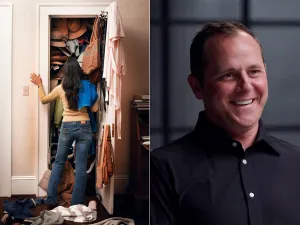Why, if I care about an issue like financial corruption, can’t I pay for journalists to investigate it and uncover new evidence?
I remember first asking myself this question in 2008, when the economy crashed around us. How could corruption on this scale have been missed? Where were the journalists (and regulators) who should have exposed these schemes before they had the opportunity to ruin millions of lives and livelihoods?
Thirty percent of newsroom jobs have disappeared since 2000, and we’ve all experienced the resulting effect on the content of our news. The more valuable the coverage, the more expensive it tends to be to produce, so public interest content and deep reporting are very hard to maintain when times are hard. “The press is our immune system,” as Jon Stewart said at the Rally to Restore Sanity. The gradual starvation of press in the public interest is a society-level immune disease.
Every high schooler in a democratic society learns about the way the free press is meant to protect the public. It’s up to the press to seek out corruption and threats to the health of the society as a whole – whether those threats come from the behavior of government or politicians, from companies and financial institutions, or the environment and our interaction with it.
The problem is that the “free press” isn’t free, and the part that protects the public is lacking.When the internet democratized publishing and spread advertising revenues across a billion new venues for entertainment and attention, the dollars that paid for journalism in the public interest went from a torrent to a trickle.
Technology broke the business model for journalism, so technology is going to have to fix it. That’s why we’re hacking the business model for journalism in the public interest by building the online platform Uncoverage. We’re going to partner with outlets, freelancers, and nonprofits like the Center for Public Integrity, to make it possible for the public to sponsor the production of journalism on topics in the public interest. Journalists and editors are signing on – folks like Franchesca Borri, a courageous journalist who has been reporting from inside Syria, Erin Banco, who is writing on the business of prisons, and Sharona Coutts, who will manage journalists working on financial corruption investigations.
[vimeo][vimeo https://vimeo.com/78816946 expand=1][/vimeo]
We started with the only three business models that have ever supported significant amounts of journalism in the public interest: advertising, subscription and patronage.
On Uncoverage, you can sponsor the monthly production of investigative journalism on financial corruption, or the business of prisons, or another topic that is affecting people like you. And when you fund journalists or topics, their pitches don’t have to be public until they are published, so journalists can work with the secrecy they often need – a first for crowdfunding in journalism.
We’ve been working for eight months on the platform, and we started an Indiegogo campaign. If you believe you should be able to sponsor real journalism on the topics that matter to you, please come support us.
The news is broken. With your help – we’ll fix it.
This project is part of GOOD’s series Push for Good—our guide to crowdsourcing creative progress.







